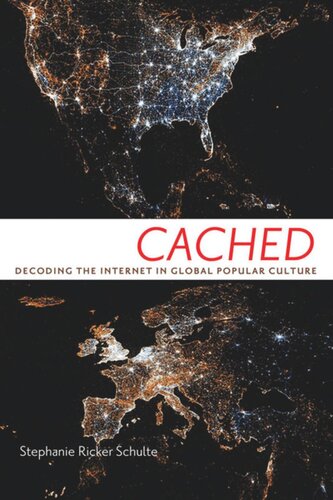

Most ebook files are in PDF format, so you can easily read them using various software such as Foxit Reader or directly on the Google Chrome browser.
Some ebook files are released by publishers in other formats such as .awz, .mobi, .epub, .fb2, etc. You may need to install specific software to read these formats on mobile/PC, such as Calibre.
Please read the tutorial at this link: https://ebookbell.com/faq
We offer FREE conversion to the popular formats you request; however, this may take some time. Therefore, right after payment, please email us, and we will try to provide the service as quickly as possible.
For some exceptional file formats or broken links (if any), please refrain from opening any disputes. Instead, email us first, and we will try to assist within a maximum of 6 hours.
EbookBell Team

4.4
22 reviews“This is the most culturally sophisticated history of the Internet yet written. We can’t make sense of what the Internet means in our lives without reading Schulte’s elegant account of what the Internet has meant at various points in the past 30 years.”
—Siva Vaidhyanathan, Chair of the Department of Media Studies at The University of Virginia
In the 1980s and 1990s, the internet became a major player in the global economy and a revolutionary component of everyday life for much of the United States and the world. It offered users new ways to relate to one another, to share their lives, and to spend their time—shopping, working, learning, and even taking political or social action. Policymakers and news media attempted—and often struggled—to make sense of the emergence and expansion of this new technology. They imagined the internet in conflicting terms: as a toy for teenagers, a national security threat, a new democratic frontier, an information superhighway, a virtual reality, and a framework for promoting globalization and revolution.
Schulte maintains that contested concepts had material consequences and helped shape not just our sense of the internet, but the development of the technology itself. Cached focuses on how people imagine and relate to technology, delving into the political and cultural debates that produced the internet as a core technology able to revise economics, politics, and culture, as well as to alter lived experience. Schulte illustrates the conflicting and indirect ways in which culture and policy combined to produce this transformative technology.